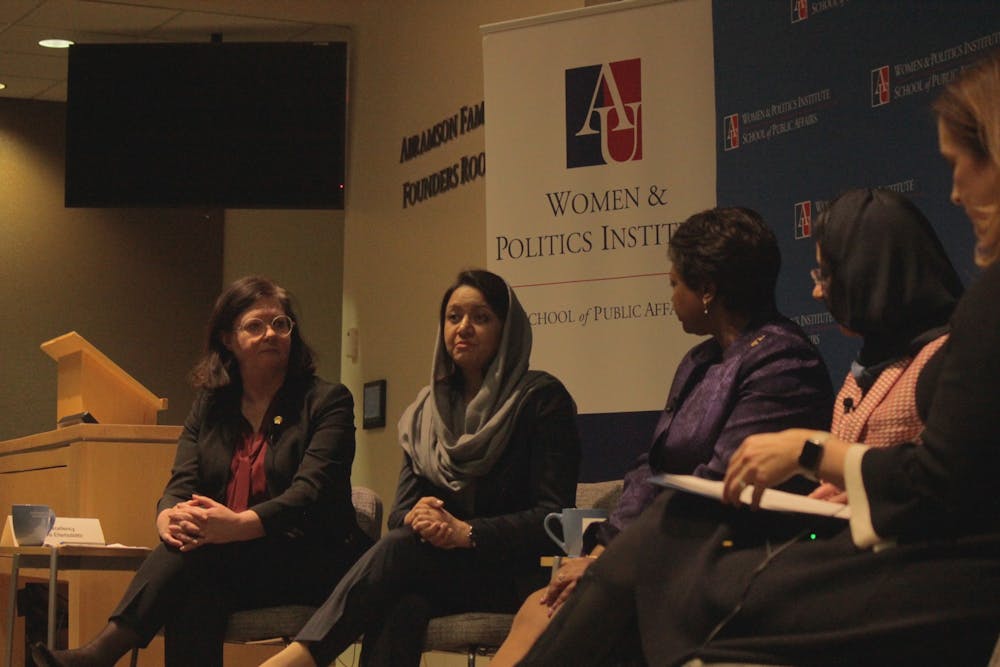In honor of International Women’s Day, four female ambassadors to the U.S. spoke at AU’s Women and Politics Institute on March 4. The ambassadors spoke to attendees about their personal careers and the future of women in politics.
The theme of the second annual event was “Each for Equal.” The goal was to share the message that an equal world would create more opportunities for women to create change.
The panel, led by Women and Politics Institute Executive Director and AU professor Betsy Fischer Martin included Ambassador Hunaina Sultan Al Mughairy of Oman, Ambassador Mathilde Mukantabana of Rwanda, Ambassador Roya Rahmani of Afghanistan and Ambassador Bergdís Ellertsdóttir of Iceland.
All of these women, from various cultural, political and professional backgrounds, spoke about how their careers and the changing political climates of their respective countries, brought them to their positions in the U.S.
Al Mughairy, the most senior woman on the panel and the first Arab woman to become a U.S. ambassador, joked when commenting on roadblocks in her career, later adding that the conservative nature of Oman has been more accepting of her position than people would normally imagine.
“Men will always be men, but it is our job as women to make sure we always are women,” Al Mughairy said.
Mukantabana went on to discuss how women became an instrumental part of reconstruction after the Rwandan genocide. Believing that “women’s rights are human rights,” Mukantabana said that women need to be present in all parts of life, but especially politics.
“It has been in Rwanda’s philosophy, even before the genocide, that women’s rights are human rights,” Mukantabana said. “Women are the majority now in the government and without them, Rwanda would be very different.”
Ramani agreed with Mukantaba that women deserve more representation in the making of political decisions.
“The minute you discount 50 percent of your population, you are just providing a ground for extremist ideologies to grow, for terrorism to be embedded,” Ramani said.
Although Ellertsdóttir supported the other ambassadors’ sentiments about equality, she admitted that her path “has been so easy” compared to some of the women on the panel. She believes that changes for women are not going to happen on their own.
For Iceland, which is considered one of the most progressive countries for women in the world, “it’s unthinkable now” not to have women in major positions of power, Ellertsdóttir said. She believes that “the next step” will include non-binary and gender non-conforming members of the LGBTQ community taking on larger roles in politics and she hopes that other countries will follow suit.
Fischer Martin said that having representatives speak from countries at different stages of equality was so important to show young women that their career possibilities are endless.
“Modeling is so important for young women to see other women that are successful in positions they aspire to have,” Fischer Martin said. “We need to bring women in from across a variety of different public service and political fields so that young women can have exposure to them to visualize themselves in that role someday.”





